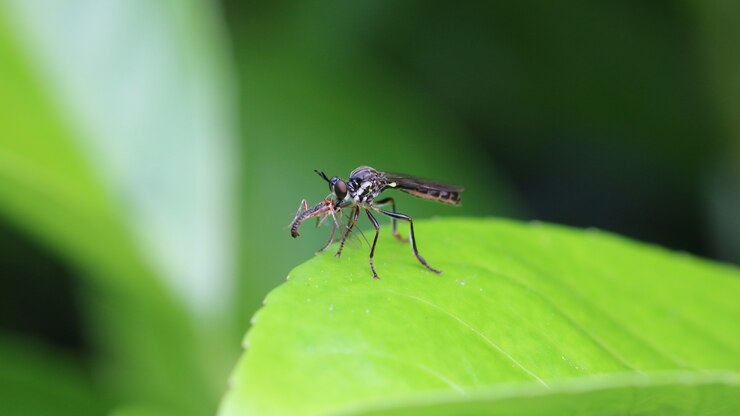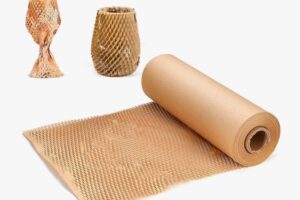
Mosquitoes are more than just a nuisance-they can be an insect of death, by carrying serious diseases like malaria, dengue, and Zika virus. While in the midst of controlling these mosquitoes that might overrun your abode, it might seem like a straightforward process; many people make simple mistakes that lead to ineffectual mosquito control. Understanding and avoiding such mistakes is necessary to take down their populations and stop these health risks. Here, we will discuss ten common mistakes of people in controlling mosquitoes and how you could avoid them to protect your home and family. With that, we would also discuss bed bug treatment as part of complete pest control.
1. Failure to Eliminate Standing Water
A significant mistake on people’s part regarding controlling mosquitoes is ignoring standing water. Mosquitoes lay eggs in stagnant water, so any source of standing water around or inside your house becomes a breeding place. Puddles, bird baths, clogged gutters, and even plant saucers are potential sites for mosquito larvae.
To prevent this error, check your premises often and eliminate any accumulated water. If you have bird baths or decorative fish ponds, change the water regularly or introduce mosquito-eating fish. Additionally, clean your gutters and repair any leaks in your house to ensure that no water gathers there.
2. Incorrect Location/ Application
Another incorrect use is that of mosquito repellent. Most people apply a mossie repellent once and expect to stay protected all day. Not. Most people make the mistake of thinking that they only need to apply repellents once throughout the day. Most repellents only work for a short period, usually a few hours at most, especially if you work up a sweat or go for a swim.
Apply mosquito repellent according to the given instructions by the manufacturer for maximum protection, especially when you spend hours outside. Be careful, also, when you use high DEET concentration repellents because too much would definitely cause skin irritation. Choose the one with characteristics that fit your needs and apply them as indicated.
3. Lack of Proper Maintenance of Screens and Barriers
Most people have assumed that closing the windows and doors keeps them mosquito-free in their houses. However, mosquitoes can pass through damaged or old window and door screens. Even a tiny tear or hole may be enough as an entry point for mosquitoes; hence, it is advisable to check the condition of your screens and then repair them when necessary.
Use mosquito nets at night to add more protection. Nets are particularly handy when the populations of mosquitoes are high. Treatments to eliminate bed bugs will prevent other intruders from entering your house, supporting your control efforts against mosquitoes.
4. Dependence on Mosquito Traps
Though mosquito traps might be effective, most people rely solely on such traps for mosquitoes control. Mosquito traps lure and kill mosquitoes but often are not enough to alter the general population drastically.
Traps are to be used in combination with other control methods for mosquitoes, such as the elimination of breeding sites and the use of repellents. This multi-layered approach will give you the best chance at keeping mosquitoes away from your home.
5. Not Treating the Yard or Landscape
Left unattended, your yard and landscaping will immediately become a haven for mosquitoes. Tall grass and overgrown bushes create areas where mosquitoes rest and breed. Such areas leave a significant number of mosquitoes nearby that can be hard to control.
This can be prevented by regular mowing of lawns and cutting shrubs. In addition, mosquito control treatments might be given to your lawn. Organic mosquito sprays could be applied on your lawn to avoid using harmful chemicals.
6. Non-Utilization of Mosquito Repelling Plants
Most homeowners tend to ignore the excellent benefits of planting mosquito-repelling plants in the garden. For example, citronella, lavender, marigold, and basil plants do repel mosquitoes naturally; therefore, chemical-based repellents will be avoided.
Plant the following plants in your landscape as natural mosquito repellents. Mosquito-repellent plants themselves are a poor long-term control measure, but they may be incorporated into a combination with other controls around your home, which will reduce the level of mosquito activity near that location.
7. Using Exterior Lighting That Attracts Mosquitoes
Another thing people often get confused about is outdoor lighting. Mosquitoes are attracted to the heat and UV rays given off by traditional incandescent bulbs.
Change the old outdoor lights to heat and UV-ray-free bulbs. Install motion sensor lights also, that would limit the hours that outdoor lights are left on in the evening. Where mosquitoes tend to multiply during this time of day, motion sensor lights will automatically turn off.
8. Failure to Inspect Your Home for Breeding Sites
Sometimes, the biggest mosquito problems are indoors. People have a habit of neglecting other areas such as bathrooms, basements, and laundry rooms where water may be standing unknown. These undetected water sources can act as breeding fields for the mosquitoes.
Make sure to check every corner and area of your house by paying special attention to wet and damply moist areas. Possible water buildup can be inspected behind appliances under sinks, etc. The drier these places are, the less likely mosquitoes will find a source to breed inside your house.
9. Overuse of Pesticides
Though pesticides could kill mosquitoes, if applied excessively, they pose problems to the environment and your health. Additionally, some pesticides result in mosquitoes developing resistance; hence, they are not efficient in the long term.
Use pesticides only when very necessary and make sure the product indicates that it is safe for household use. Always apply according to product instructions. Do your best to apply in targeted areas instead of spraying around your yard. If possible, use more holistic approaches, such as concentrated essential oils with citronella and eucalyptus.
10. Not Looking for Professional Help When Needed
Many homeowners attempt DIY methods of controlling the mosquitoes around the house and are not aware of when to seek professional help. If you have attempted many strategies yet still have an infestation of mosquitoes, then it’s time to see a pest control professional. Mosquito control experts visit your home and inspect the property with the aim of identifying breeding sites, thus making them administer safer and more effective treatments on their findings.
For instance, if you stay in an area that has mosquito diseases, professional mosquito control services are highly useful. They help you control and assist totally in getting rid of mosquitoes on your property.
Conclusion
With the best tools, proper techniques, and dedicated efforts, mosquito control becomes effective. By avoiding these ten common mistakes, you will be well on your way to eliminating almost all of the mosquitoes around your home and, consequently, protecting your loved ones from serious diseases. Consider this: mosquito control is not just a matter of repellents and pesticides; it involves eliminating a source of breeding sites; the maintenance of your environment; and using the right strategies at the right times. In case you encounter problems with mosquitoes or bed bugs, making the right decisions is a great step towards saving yourself from some kind of hurt, and all you may have needed was expert help. Enjoy a mosquito-free home if you are proactive!




